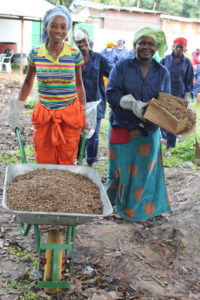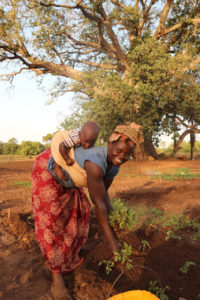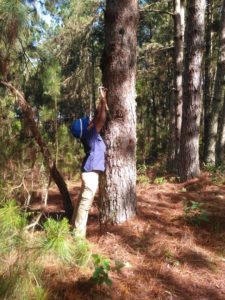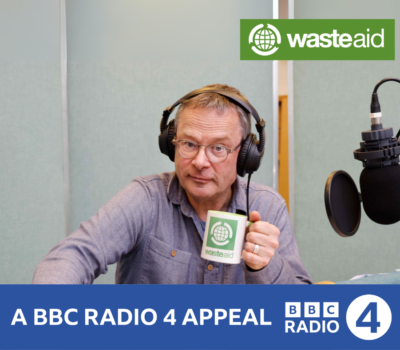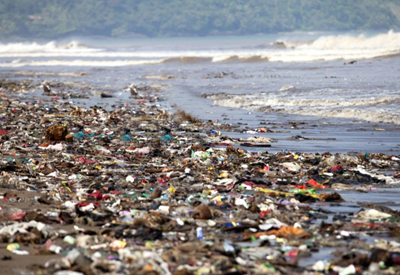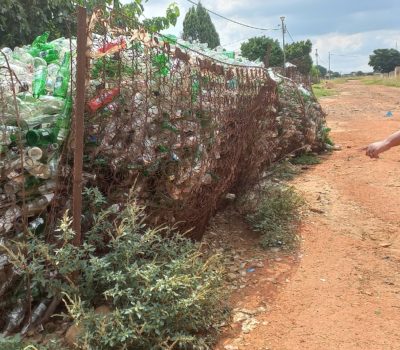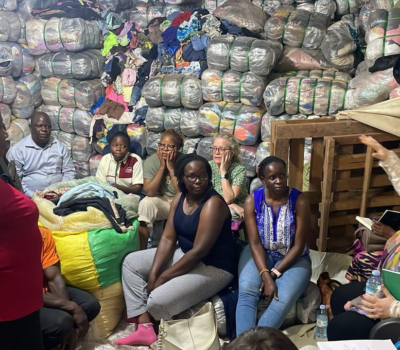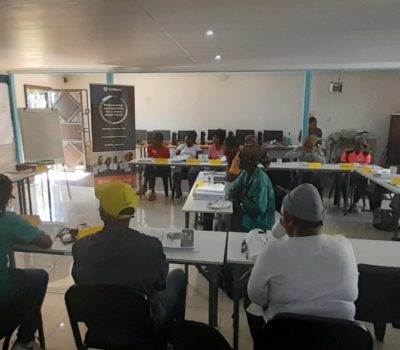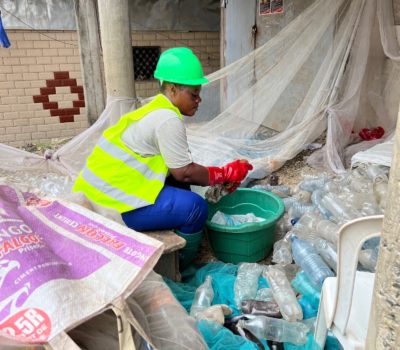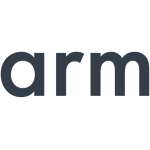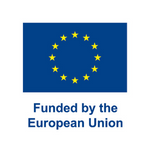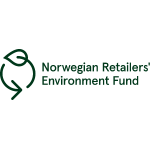Meet Ingrid Henrys, WasteAid’s new Project Coordinator in The Gambia
News
Author: Admin
Published: 28 June 2021
In April 2021, WasteAid launched a new EU-funded project to improve climate resilience in The Gambia, which will be overseen by our newly appointed Project Coordinator, Ingrid Henrys.
Working in partnership with Kanifing Municipal Council and Women’s Initiative The Gambia, WasteAid will be creating a new food waste collection service at local markets, and training women gardeners to transform it into compost, biochar and charcoal briquettes.

Thank you! In coming to The Gambia, I made a strong decision to not do any work that wouldn’t be aligned with my consciousness and the values that are really meaningful for me. When I arrived, I was concerned about how solid waste is managed in Banjul, and the facts that some gardeners I have met outside of the capital don’t make or use compost. They argue that their soil is good enough, as everything grows there. But some of them rely on chemical products for fertilising and for pest management.
Furthermore, I really wanted to work with women. I came across this opening with WasteAid, and I thought that it was exactly the kind of project in which I would want to work and the kind of organisation I would like to be part of.
WasteAid’s EU-funded project has a strong element of working with women gardeners. Can you describe the benefits you think this project will bring to them?
I think that, with this project, the women gardeners will truly feel and see the value of their work. They are the main fresh food producers in the city and providers to the local markets. They rely on chemical fertilisers that can be expensive and still their yields are not improving.
Gardening is about closing a loop, we take nutrients from the soil when we harvest, so we must return good quality nutrients to it if we want it to keep offering good quality products. The women will learn methods that will allow them to improve the quality of their soils without having to buy chemical products.
With time, their products will be of better quality. Also by learning those techniques, they will be able to create new sources of income if they want, by selling compost, briquettes, or biochar.
The United Nations Climate Change Conference (COP26) is taking place later this year. How is climate change impacting on women gardeners in The Gambia and how will this project make a difference?
One of the main impacts of climate change that I could observe in The Gambia, is the modification of the rainy season. The rains come later than before, delaying and shortening the season. Also, I believe that the rains are pouring stronger, causing floods and damaging some crops. As the dry seasons get longer, the women gardeners have more difficulty in guaranteeing their produce as they don’t have big water storage facilities. With this project they will be able to improve the water retention capacity of the soil, especially with the use of biochar; they will also improve the nutrient content of the soil with compost.
Also, sometimes they apply peanut shells directly on the ground. Those shells attract termites and they can also compete with the crops for nitrogen. By converting them into biochar, they can be of a better use. The application of biochar will improve the general quality of the soil for years, enhancing the yield and quality of the crops.
Charcoal briquettes made from woody waste are an effective substitute for forest timber. What are the main barriers to uptake and how could these be overcome?
People can be reticent to the use of a « new » product and can tend to stick to their old habits until they see the benefits of the new product. Also, we need to make sure that the briquettes are sold at an equal or lower price than the charcoal made from forest wood.
It will also be necessary to train people on how to use the briquettes, and to train resellers, so they can make a good advertisements for the product and encourage their customers to buy it.
We will need to do demonstrations of the use of the briquettes and to have public figures advertising the use of them and adopting them for their own use. With this, the general public will be more likely to accept the product. And all this will need to go hand to hand with sensitisation on the impact of deforestation for charcoal production and why briquettes are a good alternative.
Your background includes conservation and permaculture. What do you see as the main links between these and waste management?
Biodiversity and environmental conservation, and permaculture, all aim at allowing us, human beings, to live in harmony with nature. We want to work with nature and not against it. If we want to really be conscious of our acts, and to make decisions bearing in mind the seven generations to come after us, like indigenous tribes of North America do, we must consider carefully how we manage our waste. And by managing waste, we also think about waste production.
The more waste produced and poorly managed, greater the negative impacts on our environment and the biodiversity surrounding us, that we are a part of. In permaculture, we consider that a pollution is a resource waiting to be used, and when designing we want the elements used to fulfil several functions. We also apply ourselves to mimic nature. In a well-balanced ecosystem such as a forest, there is no waste per se, everything is reused or transformed.
Proper waste management can allow us to do the same.
Written by Zoë Lenkiewicz
This 12 month project will take place within Kanifing Municipality, the most populous region of The Gambia. It is funded by the EU GCCA+ programme.

